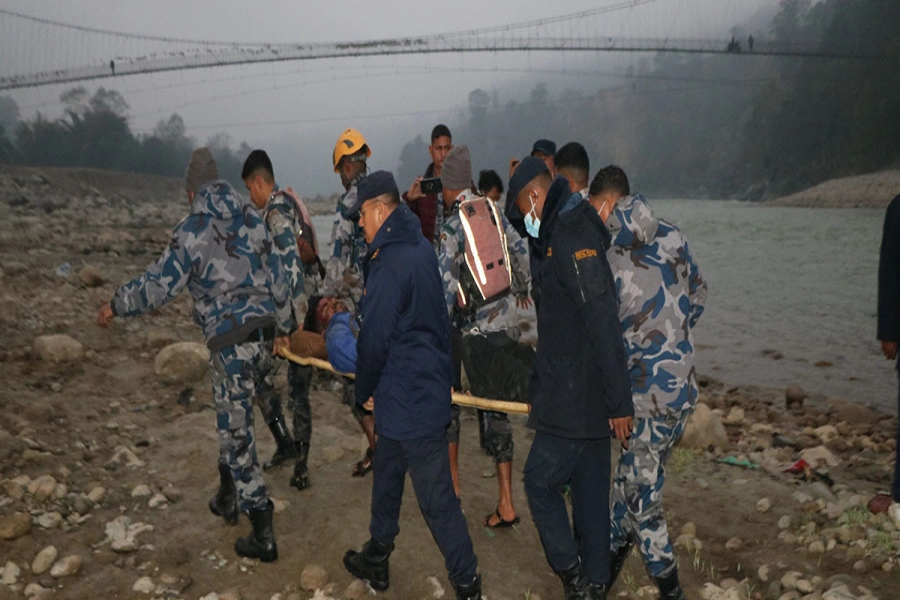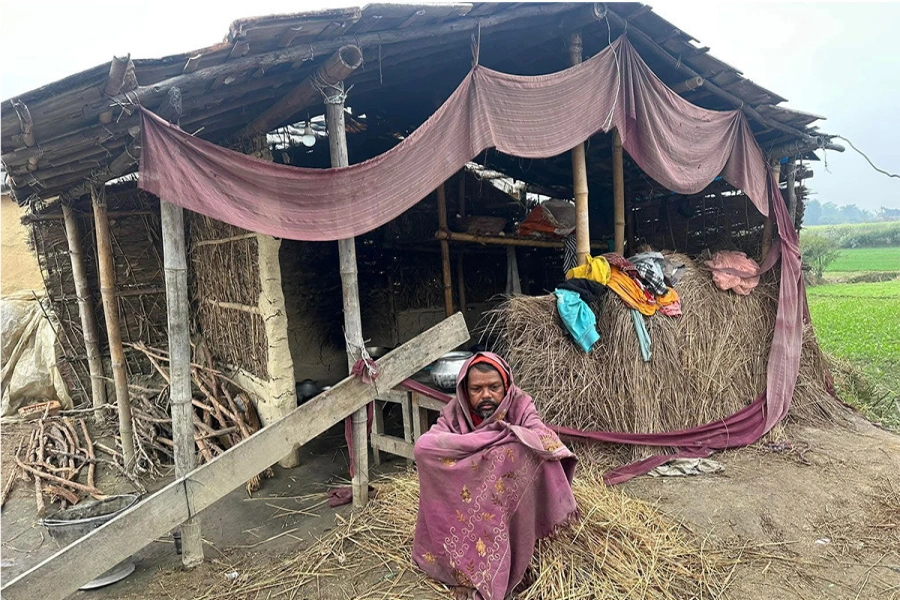The world renowned magazine "The Economist" in its July 4th 2023 issue, published an article entitled "Why China should be friendlier to its neighbors". The article categorized China’s neighbors into three broad camps : fragile or failing states (Afghanistan, Laos, Myanmar, Nepal, North Korea and Pakistan), frenemies that have close ties but fear Chinese domination (Mongolia, Russia and Central Asian states), and places with either defense treaties with America or military ties to it (India, Japan, the Philippines, South Korea, Taiwan and Vietnam).
Since Nepal has been portrayed as a fragile or failing state, it has several attributes, and its fragility may manifest itself in various ways. Some of the most common attributes of fragility may include: the loss of physical control of its big territory or a monopoly of limited state actors on the legitimate use of state power; the erosion of legitimate authority to make collective decisions on national interests; an inability to provide reasonable public services; and the inability to seriously interact with powerful neighbors and other powerful countries as a sovereign state and full member of the international community.
"Why Nations Fail: The Origins of Power, Prosperity, and Poverty", first published in 2012, is a book by economists Daron Acemoglu and James A Robinson has also portrayed Nepal as a failing state. The book applies insights from institutional economics, development economics and economic history to understand why nations develop differently, with some succeeding in the accumulation of power and prosperity and others failing, via a wide range of historical case studies. Based on the book, nations fail today because their extractive institutions do not create the incentives to save, invest and innovate. In many cases politicians stifle economic activity because this threatens their power base (the economic elite) – as in Argentina, Colombia and Egypt. In the cases of Zimbabwe and Sierra Leone this led to total state failure and economic stagnation. The countries in which this has happened include Angola, Cameroon, Chad, DRC, Haiti, Liberia, Nepal, Sierra Leone, Sudan and Zimbabwe. And the civil war, mass displacement, famines and epidemics that accompany them… in terms of development many of these countries are poorer today than they were in the 1960s.
Nepal ranked 33rd most fragile state in the world

Since almost all systems and subsystems in Nepal are not properly functioning in minimum standards, we can clearly observe its reflection in almost all fields of national importance. Based on the fragile state index 2023, Nepal received 80.2 high earning states with 55th position out of 179 countries. A higher score (with a maximum of 120) indicates a weaker, more vulnerable, or more fragile situation in the country. Furthermore, according to the Corruption Perceptions Index 2022, an annual flagship publication of Transparency International, Nepal has been ranked in 110th position out of 180 countries and territories in the Corruption Perceptions Index.
The Economist Intelligence Unit rated Nepal a “hybrid regime” in 2019, and such nations have been portrayed with regular electoral frauds, preventing them from being fair and free democracies. These nations commonly have governments that apply pressure on political opposition, non-independent judiciary, widespread corruption, harassment, and pressure placed on the media, anemic rule of law, and more pronounced faults than flawed democracies in the realms of underdeveloped political culture, low levels of participation in politics, and issues in the functioning of governance. Being a hybrid country, Nepal has mixed regimes with some elements of democracy mixed with strong autocratic features. Most stable countries are either full democracies or full autocracies. Nepal presents a façade of democracy but lacks its substantive elements. Mixed regimes are inherently more unstable and prone to disruptions than either full democracies or full autocracies. However, its strong neighbors would try to prevent extremities in Nepal for their security reasons.
One of the characteristics of the fragile states is that Nepal has serious border disputes with India in several places, and India has occupied a strategic location of Kalapani territory by challenging the sovereignty of Nepal. However, Nepalese leaders hardly raise this issue with india. Besides, the great power countries are more interested in direct engagement and observation in Nepal as a result of political instability and high frequency in camp switching contrasting actions seen in political parties. Besides India, the US through MCC and China through BRI have stepped up their strong presence and Nepal is in a delicate situation of handling and balancing them. Its economic, political and other priority areas have been overshadowed by these balancing acts.
Furthermore, as the constitution of Nepal is a document of compromise among political parties, the selection of Members of Parliament in the House of Representatives by the political parties through proportional representation has been, more or less, a part of the flourishing centralization of power and a passage to be always in power for political parties. And the Judicial Council, consisting of a majority from outside the judiciary, dominates the appointment of judges in the Supreme Court. However, the role of outside players other than the judiciary is prohibited during appointments in the judiciary in many countries. Moreover, giving immunity to the policy decision of the cabinet, investigating from the Commission for the Investigation of Abuse of Authority have given unusual power to freedom for corruption.
Nepal has been one of the poorest countries with lowest per capita income in South Asia despite its effort to reduce poverty. As a result of high exploitation and inequality level in society and unemployment as a major problem, migration from Nepal has become a major source of employment and foreign currency which indicates extreme situations of poverty and inequality gap between the haves and the haves not in the society. The economic health of the nation is not very healthy with lowest revenue collection, high expenditures in unproductive sectors and deteriorated productive sectors are making the economy more vulnerable. The achievements made by the projects executed through public debts are far below acceptable level and the government acquires loans to repay existing debt.
Public service delivery in Nepal is full of unfriendly behaviors of service providers and costly services. Citizens receive services in multiple attempts, spend many days and hours, travel long distances and pay additional cost for services and seem to be painful for service seekers. Whether Nepalese elites and the authorities accept or not accept the reality of being a fragile state,but it cannot be denied that Nepal possess most characteristics of the fragile nations indicators, upon which the Fragile States Index is based, which cover a wide range of state failure risk elements such as extensive corruption and criminal behavior, inability to collect taxes or otherwise draw on citizen support, large-scale involuntary dislocation of the population, sharp economic decline, group-based inequality, institutionalized persecution or discrimination, severe demographic pressures, brain drain, and environmental decay. Only a multi-party system and periodical elections are not enough to be a democratic nation, while other important organs of the states are still weaker and not completely independent.






































